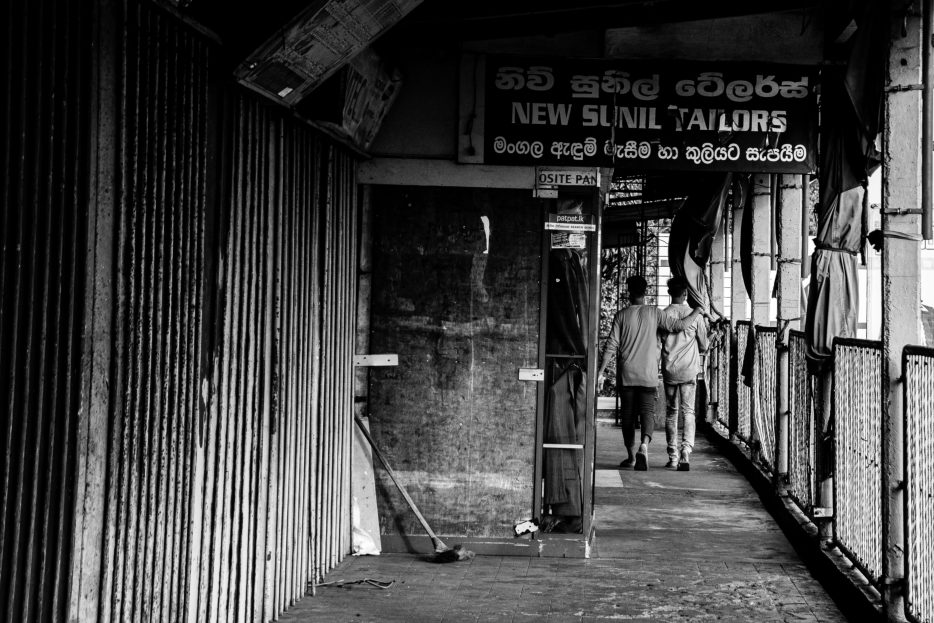The ICJ launched a briefing paper entitled “Sri Lanka’s Vagrants Ordinance No. 4 of 1841: A Colonial Relic Long Overdue for Repeal” in a webinar held on January 28, 2022.
The Vagrants Ordinance of Sri Lanka is a remnant of the country’s British colonial legacy which oppressively targets persons from economically marginalized groups in society. State authorities have applied the law today to directly discriminates against women, specifically transgender women and sex workers. The vague and overbroad nature of several provisions of the Vagrants Ordinance invariably results in their arbitrary use by the police.
The ICJ has called for the repeal of the Ordinance.
The briefing paper was launched at a webinar where panelists and participants who spoke agreed that the Vagrants Ordinance must be removed from the Statute books.
Sushmitha Thayanandan, ICJ’s National Legal Adviser for Sri Lanka highlighted the adverse human rights consequences of the law and explained that the ICJ would work towards the repeal of this legislation to reduce the ongoing abuse of persons from marginalized and disadvantaged groups.
Attorney-at-Law Senaka Perera who is the National Organiser of the Center for Sex Workers Rights explained how the Vagrants Ordinance has been specifically used to harass and arbitrarily arrest sex workers, even though engaging in commercial sex is not unlawful in Sri Lanka as the courts have consistently affirmed.
Chandrakanthi Abeykoon representing the Community Strength Development Foundation (CSDF) spoke about the harrowing experiences of sex workers at police stations and during court proceedings when they are wrongfully arrested under the Vagrants Ordinance and how the families of sex workers are adversely impacted by the misuse of this law.
Sakuni Mayadunne, founder of the Trans Equality Trust shared several anecdotes of how transgender persons are harassed and arrested under the Vagrants Ordinance. She also explained how the police often falsely accuse them of drug possession in an attempt to extract an admission of guilt from them.
Leigh Toomey, a member of the UN Working Group on Arbitrary Detention (WGAD) of the UN Human Rights Council, was part of the panel of members which undertook a visit to Sri Lanka in 2017. She spoke about the findings of the WGAD in relation to the Methsevana House of Detention in Gangodawila, Sri Lanka, which is the only state-run detention center for women who are arrested under this law.
While reiterating the call for the repeal of the Vagrants Ordinance, she encouraged participants working in this area submit individual complaints to the WGAD until such time as a full repeal is achieved.
The ICJ echoes the call of the WGAD, the Committee on the Elimination of Discrimination of Women and many others regarding the need to repeal the 180-year old Vagrants Ordinance of Sri Lanka. Any aspects of the law which may be retained in revised form must be reviewed and replaced under specific legislation on the matter, in keeping with Sri Lanka’s international human rights law obligations.
While the ICJ calls for the repeal of the Vagrants Ordinance in its entirety, it has made specific recommendations in the legal briefer to the relevant Sri Lankan authorities, including the Parliament, Minister-in-Charge, Magistrates, Police and other State officials and aims to engage with the relevant State officials in this regard.
The webinar was organized under the ‘Enhancing Access to Justice for Women in Asia and the Pacific’ project funded by the Swedish International Development Cooperation Agency (SIDA). Due to the COVID–19 pandemic the webinar was conducted virtually. It was conducted in English with simultaneous translation in Sinhala language was made available for the participants.
Download the full Briefing Paper:
English version, click here
Sinhala version, click here
Tamil version, click here

